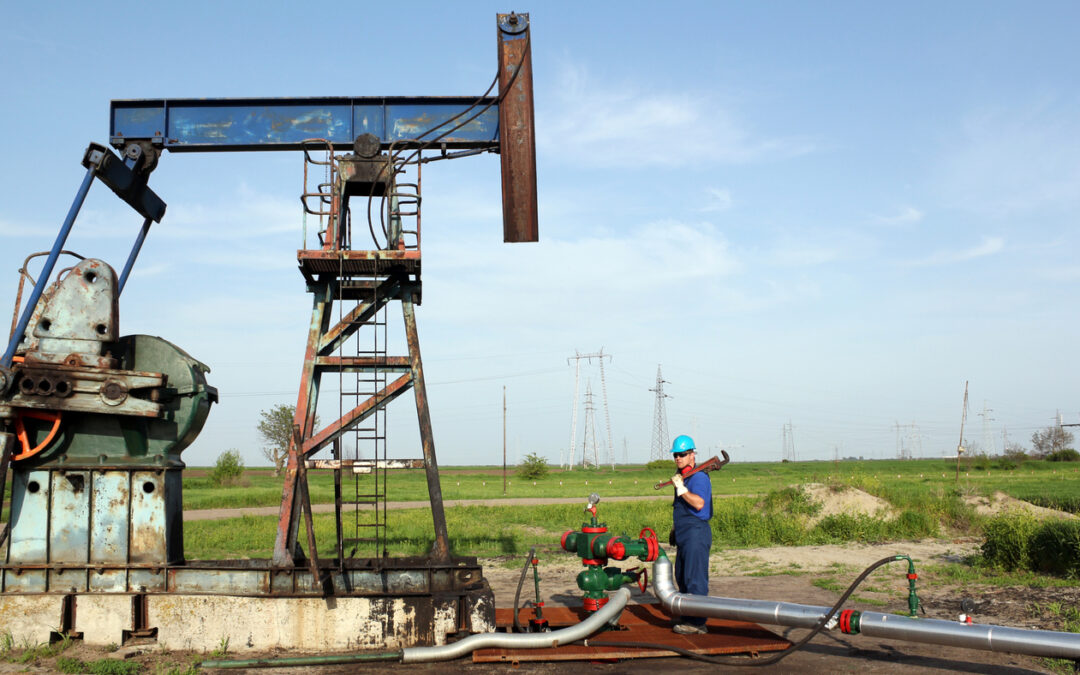Have you considered the long-term effects of your oilfield injury? Discover your rights and secure your future.
Oilfield workers in Houston face significant hazards on the job, with potential accidents posing serious risks to their health and livelihood. While immediate actions after an accident are critical, understanding the comprehensive, long-term effects and legal avenues is essential for securing both immediate and future stability.
Key Takeaways
- After an oilfield accident, it’s important to first ensure your safety, seek medical help, and report the incident to your supervisor. Documenting the event thoroughly and gathering evidence like photos and witness information are crucial steps that help with any future legal claims.
- Knowing and following Occupational Safety and Health Administration (OSHA) regulations is important for protecting worker safety and supporting your legal rights. If your injury was caused by a failure to meet these safety standards, such as improper maintenance of equipment, it can significantly strengthen your case against your employer.
- While workers’ compensation offers quick benefits for injured workers, it often doesn’t cover all long-term impacts, such as pain or lost future earnings. Pursuing a personal injury lawsuit might be necessary for a more comprehensive recovery, especially if negligence was involved. Having a lawyer to evaluate your case, develop a strategic plan, and guide you through the legal process is crucial for securing the best possible compensation.
Initial Steps for Securing Your Future After an Oilfield Injury
After an oilfield accident, the chaos and confusion can be overwhelming. However, taking the right steps immediately afterward is critical. These actions are essential for your health and crucial for any future legal claims:
- Ensure safety and seek medical attention: The first priority is your safety. If injured, do not attempt to move unless necessary to avoid further harm. Call for emergency medical help immediately. Even if injuries seem minor, hidden complications often arise, and having a medical record from the day of the accident can be critical.
- Report the incident: As soon as you are able, report the accident to your supervisor or safety officer. This report should be detailed, noting the time, location, and any factors contributing to the incident. Include any unsafe conditions, faulty equipment, or failures in following safety protocols. This documentation is essential and serves as the first piece of evidence in your claim.
- Gather evidence: If your condition allows, or with the help of coworkers, gather as much evidence at the scene as possible. Use your smartphone to take photographs or videos of the area where the accident occurred. Focus on specific hazards that contributed to the accident. Collect the names and contact information of any witnesses. Their accounts can be invaluable as they provide an independent perspective of the events.
Complying with OSHA: A Foundation for Your Legal Strategy
Understanding and following Occupational Safety and Health Administration (OSHA) regulations is important not only for meeting legal requirements but also for protecting workers’ safety. If an accident happens in the oilfield, knowing OSHA standards is key to your legal approach:
- Compliance and Safety Standards: Every oilfield is required to meet safety standards set by OSHA. These rules are there to prevent accidents by requiring things like proper maintenance of equipment, thorough training for workers, and the right safety gear.
Getting to know these rules helps you spot any safety shortcuts or mistakes that could lead to accidents.
- Violation of Regulations: If your injury happened because OSHA standards were ignored, pointing this out strengthens your legal case. It shows that your employer did not do their part to keep the workplace safe.
For example, if an accident was caused by equipment that wasn’t inspected as required by OSHA, this fact can significantly support your claim for damages. Your lawyers can use this information to prove that your employer was negligent, which might lead to a better settlement or judgment in court.
Workers’ Compensation and Its Role in Your Long-Term Recovery
Workers’ compensation acts as a safety net for employees injured on the job. It provides critical benefits that can be a cornerstone of your recovery process. While it offers essential support, understanding its scope and limitations is key for ensuring comprehensive long-term recovery:
Quick and no-fault benefits
Workers’ compensation is designed to provide financial relief quickly without the need to prove that your employer was at fault for the accident. This means you can receive benefits like medical cost coverage and a portion of your lost wages soon after your injury, which helps manage immediate financial pressures.
Limits on recovery
Despite its benefits, workers’ compensation does not cover everything. It doesn’t compensate for pain and suffering, and it may not fully match the salary you lost or cover future earning potential if you can’t return to work at the same capacity.
For injuries with lasting impacts, such as long-term disabilities, the compensation might not be enough to cover ongoing medical treatments or rehabilitation costs. If the accident was caused by negligence, pursuing a personal injury lawsuit could provide additional compensation to address these gaps.
This legal route can factor in broader damages, including full loss of future earnings and compensation for ongoing pain and suffering, offering a more complete financial recovery suited to long-term needs.
Identifying Third-Party Liability in Oilfield Injuries
Liability might extend beyond the employer, especially when other parties contribute to the accident:
- Equipment manufacturers: If faulty equipment caused the injury, the manufacturer might be held liable.
- Contractors and subcontractors: If another company’s negligence played a role, they might also be liable.
- Property owners: If the injury occurred due to unsafe conditions on a property not owned by your employer, the property owner could be held responsible.
The Critical Role of Legal Representation in Securing Your Future
Navigating the aftermath of an oilfield injury involves complex legal decisions that can have long-lasting impacts on your life. A personal injury lawyer is crucial for managing these complexities effectively and ensuring that your rights are fully protected:
- Thorough case evaluation: A lawyer will thoroughly review your case, looking at every angle to identify all potential sources of compensation. This may include not only workers’ compensation but also personal injury claims and possible third-party liabilities.
- Strategic legal action: Your attorney will develop a tailored strategy that considers all facets of your case. This strategy includes negotiating with insurance companies to secure a fair settlement and, if necessary, taking your case to court to fight for the compensation you deserve. The goal is to cover all current and future medical expenses, lost wages, and other damages such as pain and suffering.
- Guidance through legal processes: From filing claims to litigating in court, a lawyer can handle all legal procedures, making the process less stressful for you. They ensure that all filings are timely, requirements are met, and your case is presented as strongly as possible.
Secure Your Legal Rights and Long-Term Well-being
If you or someone you know has been hurt in an oilfield accident in Houston, acting quickly is important to protect your rights. Our law firm handles more than just oilfield injuries. We manage cases involving vehicle accidents, ensuring you receive the help you need for any injuries and losses you’ve suffered. If you’ve lost a loved one due to someone else’s negligence, our caring team is here to help you fight for justice and compensation.
We also tackle legal challenges related to workplace injuries. Whether it’s a minor or major incident, we navigate the legal complexities to ensure you get the benefits and compensation you deserve. If you’ve been injured on someone else’s property because it wasn’t kept safe, or if you have suffered due to inadequate security measures at a location, we are ready to support your claim and hold the responsible parties accountable.
Contact us today to discuss your situation. Our team is ready to support you in defending your rights and working towards the best possible outcome.

